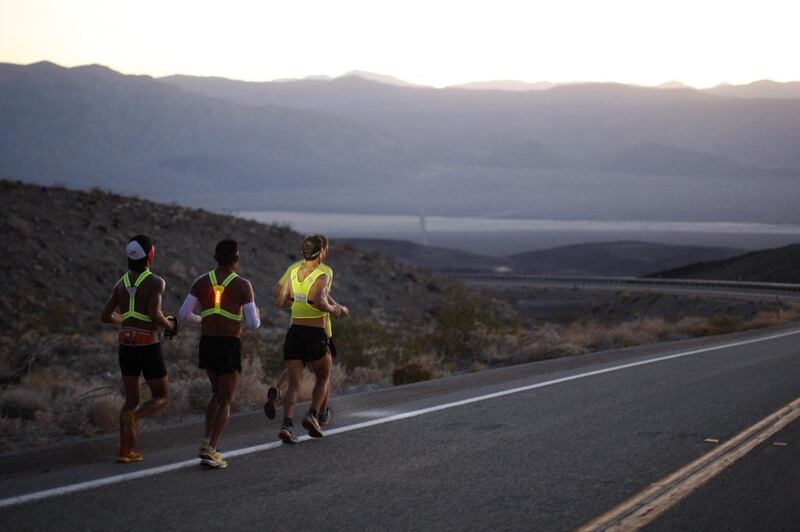With challenging workouts – from ultramarathons to endurance events on obstacle courses – all the rage, fitness experts say more and more weekend warriors are leaping into extreme activities before they look into the perils of overdoing it.
The drive to push the body too far, too fast can backfire in most unpleasant ways. Recent studies suggest extreme over-exercising can cause conditions such as sleeplessness, blood poisoning, broken bones or heart damage.
The UAE outdoor activity calendar is becoming increasingly heavy with these sorts of trendy, gruelling challenges. Earlier this year, Dubai hosted the 40-obstacle Gauntlet DXB, the Reebok Spartan Race, The Sand Pit endurance challenge and the North Face Night Rock Run through the rocky meandering Wadi Shawkah trail. The team-based Desert Warrior Challenge will be held in Dubai on October 23 and in Abu Dhabi, as well.
Experts in the country advise participants to assess their health before signing up, to prevent injuries.
“People who haven’t put their bodies through that stress before but want to participate in such events must plan for them,” says Chloe Moir, a nutritionist and personal trainer at Smart Fitness in Dubai. “And they must then get into a routine of regular exercise based on the goals of the challenge and complement it with the right nutrition.”
Moir says participants can also follow some basic guidelines before the event to prevent injuries.
“They need to stay hydrated and have a good balanced meal the night before and refrain from junk-food takeaways. A good night’s rest also plays an important role.”
“Massive jumps in activity level – that’s how you get stress fractures,” says Dr Derek Ochiai, an orthopaedic surgeon specialising in sports medicine.
Overuse injuries, ranging from rotator cuff damage to tendinitis, comprise a significant part of his practice in Arlington, Virginia. “Pain tells you you’re injuring something,” he says. “Instead of pounding a treadmill for 90 minutes through severe shin pain, [and] bench-pressing with intense shoulder pain, stop. Rest it. Then go back at a lighter level.”
Elite athlete and running coach Tom Holland says he has seen an explosion in the number of extreme-fitness events over the last decade.
“Many people who might never have competed in an organised event in the past are jumping right into these extreme races,” says Holland, author of Swim, Bike, Run – Eat, who has run more than 60 marathons.
“When it feels like it’s too much, it’s too much,” he says. “There is absolutely a point of diminishing returns.”
Disorientation, severe muscle cramps, cessation of sweating and dizziness are among the warning signs, he adds.
A recent Australian study of ultramarathoners found that extreme exercise may trigger blood poisoning in people who haven’t trained properly.
The research, published in the International Journal of Sports Medicine, showed that pushing the body too far can cause intestinal bacteria to leak into the bloodstream, causing the poisoning.
A 2012 study also showed long-term endurance running may cause heart-muscle scarring.
Anthony Wall, of the American Council on Exercise, says continual fatigue, a decrease in performance, a sense of apathy or distraction are subtle signs of overtraining.
“It isn’t about going hard all the time,” he says. “Professional athletes spend a tremendous amount of time in recovery and low-impact activity.”
Dr Ochiai said the cardiovascular benefits of moderate exercise far outweigh the risk of injury.
“It’s far better to be exercising than not, but you don’t have to see results the day you start,” he says. “It’s a marathon, not a sprint.”
Reuters, with additional reporting by Afshan Ahmed






